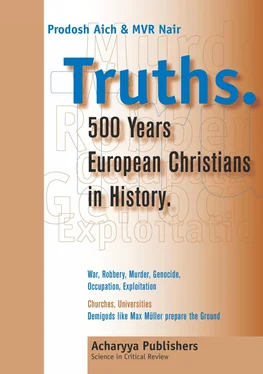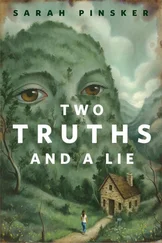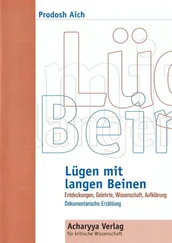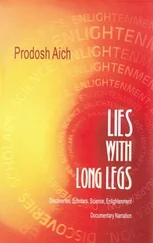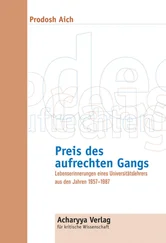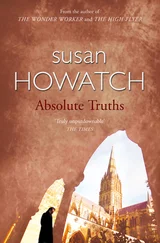All “scholars” thereafter had just copied Theodor Benfey. After Rosane Rochermade this discovery, she runs out of breath. Or, even worse, she is not interested in finding out how and why Theodor Benfeydid write it. She could have asked – we think it is necessary – if it was an “accidental” error. But a scientific discipline and its ethics in this culturedid not motivate her enough to look further, to find out how frequent such errors were, whether they were intentional (“malice of intent”) or caused by pressure of work – the rush to publish in a hurry. Therefore, we are still in the dark as to why the German Indologist Theodor Benfeydid spread wrong information about Alexander Hamilton. Let us wait and see. We are on look out.
Hadn’t it been so far removed from our search, we would have pursued the matter. Besides, it is not our purpose presently to examine the reliability of sources of current “historical research”, but to describe this wonder-some culture and the way in which celebrated “modern scientists” deal with handed-down sources, secondary sources. Therefore, we must leave this issue unresolved here but also have to admit that we could not suppress a smile seeing this common copy-and-paste practice in all “ scientific” books. We apologise for smiling.
We have to deal in depth with Alexander Hamiltonbecause there is no reference that anybody else gave Sanskrit lessons anywhere in Europe before 1803. He was apparently the pioneer in this field. Who is he? How does he acquire his knowledge of the Sanskrit language? How good could have been his lessons actually? Here too, we stick to our simple experience of life: it is more important to know the ‘who’ of the person vis–a–vis is, what he does, by whom he is kept, than to get involved with what he is telling or what others are saying about him.
We are astonished that such an apparently important personality is almost a blank page in books or documents. It is not even on record as to where he died on December 30, 1824, not to talk about the place of his birth. This date of his death is found as an obituary notice in “Gentleman’s Magazine” in England.
As a rule, the importance and the extent of fame of contemporary personalities can be derived from documented references. Does anybody depart from life the way Alexander Hamiltondid if he had been such an important personality as late-born “historians” and “Indologists” want to make us believe? Why do they do it? We just cannot accept that Alexander Hamiltonwas an important personality of his time. In all probability, he is made to be an important personality. But why? What was the necessity? We have to investigate.
As narrated by Helmine de Chézyand Friedrichand Dorothea von SchlegeI Alexander Hamiltonwas born in a Scottish village. Name unknown. Nothing else is known about his childhood, or anything about his education. They had often been together in Paris, they were friends, in fact, and they had shared a flat and lived as a “commune” for some time. They must have known much more about Alexander Hamiltonthan they have handed-down to posterity in writing.
Why didn’t they tell us more about him? The most probable explanation is that there was nothing worthwhile narrating about his parents, his childhood, his school days, his upbringing, and his education. He apparently didn’t have a college degree. He doesn’t appear on any Graduate list of the colleges in Great Britain.
The earliest record about him is found in the alphabetical list of all members of the Indian army of 1783. Accordingly, he is recruited as a cadet for the “Bengal Army” in England. The date of his birth is missing, which was not usual. This could be an indication that either his parents died early or that he did not know the exact date of his birth. It is also not known when he comes to Kolkata. This was uncustomary too.
At that time, only a few ships sailed to Kolkata. Usually passenger lists were prepared and filed. Nevertheless, there were passengers and lesser passengers presumably also at that time. He however appears on a list in Kolkata in February 1785 as an ensign of the infantry, the lowest rank of a would be officer in the infantry, and not as a naval officer, as Franz Bopp, Salomon Lefmann, Ernst Windisch(1844–1918) and others have handed-down. Who would like to know how they came to “Naval Officer” and which wishful wrong information they had copied. It was definitely not accidental to vendor wrong information. Naturally, this wrong information is diligently created and spread. Doesn’t “Naval Officer” sound more dignified than an “infantry ensign”? Well!”
This list of February 1785 indicates that Alexander Hamiltonarrived in Kolkata not before the 4th quarter of 1784. According to the “Bengal Calendar” on February 22, 1785 and according to the “Calcutta Monthly Register” on March 13, 1785 he joins the infantry. From 1785–1790 he remains a “ supernumerary” in the infantry, i.e. the lowest grade in the career to an officer. On February 15, 1790, he becomes permanent: “Ensign Supernumerary to the Establishment, to be brought from the 15th February 1790, on Full Pay and Posted to Corps.”
He couldn’t have been a big shot at that time. His financial means were modest up to February 15, 1790. The “Asiatick Society” was founded on January 15, 1784. It publishes in the first volume of Asiatick Researches a list of all members of the “Asiatick Society” for the first time on January 15, 1789. We shall deal with this Society and all that goes with in later in a separate chapter. On this list he is listed as a lieutenant. How could he be “ Lieut. Alexander Hamilton” on January 15, 1789 if he was “Ensign Supernumerary to the Establishment, to be brought from the 15th February 1790, on Full Pay and Posted to Corps?” Is it because an ensign supernumerarywas too low in standard for the high honourable society of “colonial scholars” and he was therefore just upgraded?
This list might have tempted Theodor Benfeyto promote Alexander Hamiltonto a founder member of the “Asiatick Society”. “Founder-members” carry more weight, don’t they? The fact is that he couldn’t be a founder member because he landed in Kolkata approximately a year after the “Asiatick Society” was founded. “Modern historians” and “Indologists” are obviously just carried away to palatability when they narrate and thus becoming swindlers. Who is going to check once it was printed? We know already that celebrities like Arthur Llewellyn Bashamdidn’t care more about checking before copying former printed products and did not hesitate to tamper documents to transport great visions.
Since 1785, its founder, Sir William Jones, celebrates the “Asiatick Society” at the beginning of every year. He invites all non-Asians in and around Kolkata and those posted elsewhere to his annual “discourses”. He encourages and puts pressure on every “Tom, Dick and Harry” to write field reports. Only non-Asiatic “Tom, Dick and Harry”, of course. He edits and publishes them as learned investigation reports.
Since 1789 the Asiatick Researches comes out annually and are circulated in Great Britain. And from there to the whole of Europe. In none of these volumes is there a mention of Alexander Hamilton. Not to speak about an “enthusiastic Sanskritist” or “Orientalist” Alexander Hamilton. And there is absolutely no indication in later publications that anybody in Kolkata had ever taken notice of Alexander Hamilton. Quite remarkable, isn’t it?
Читать дальше
